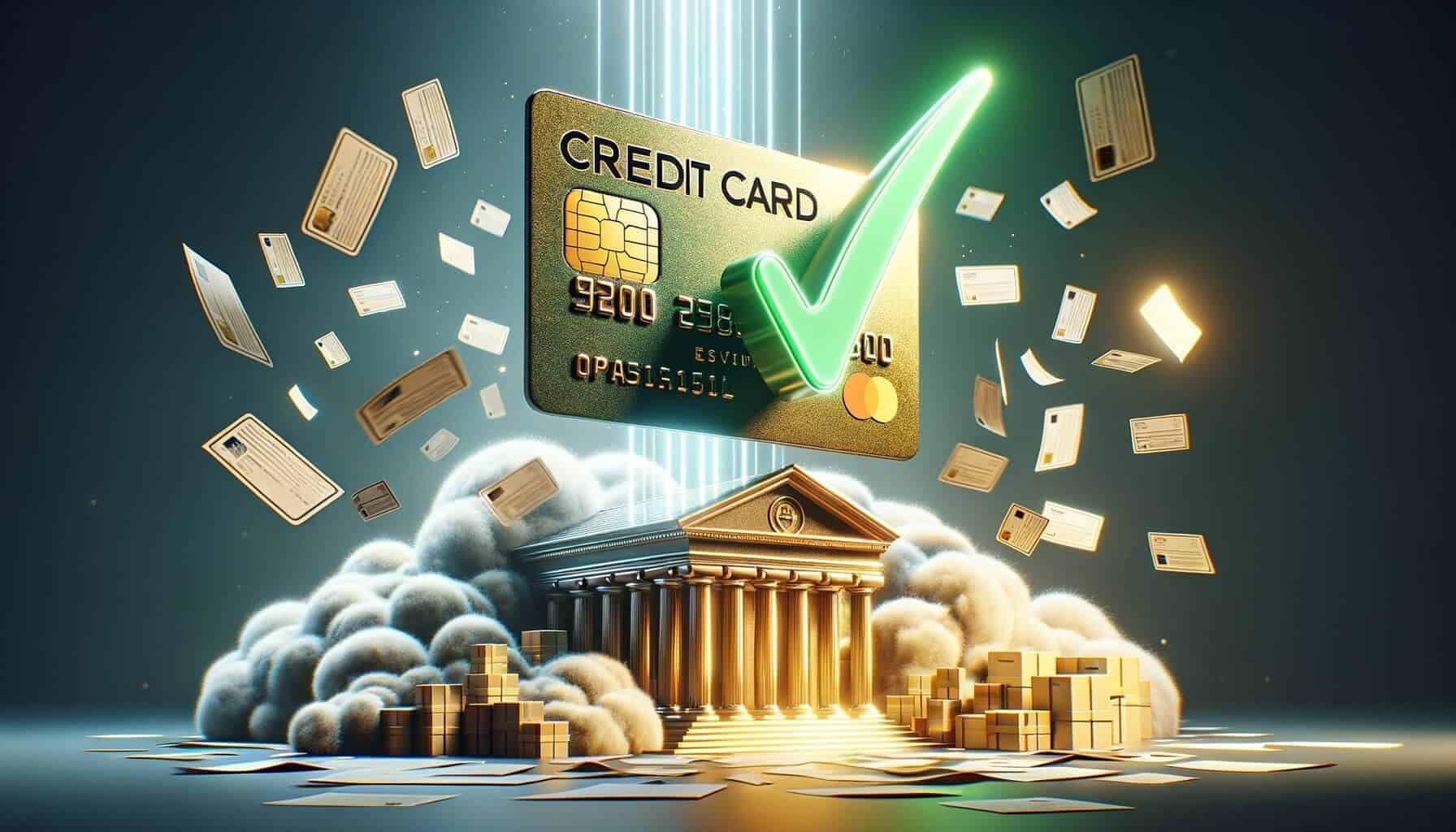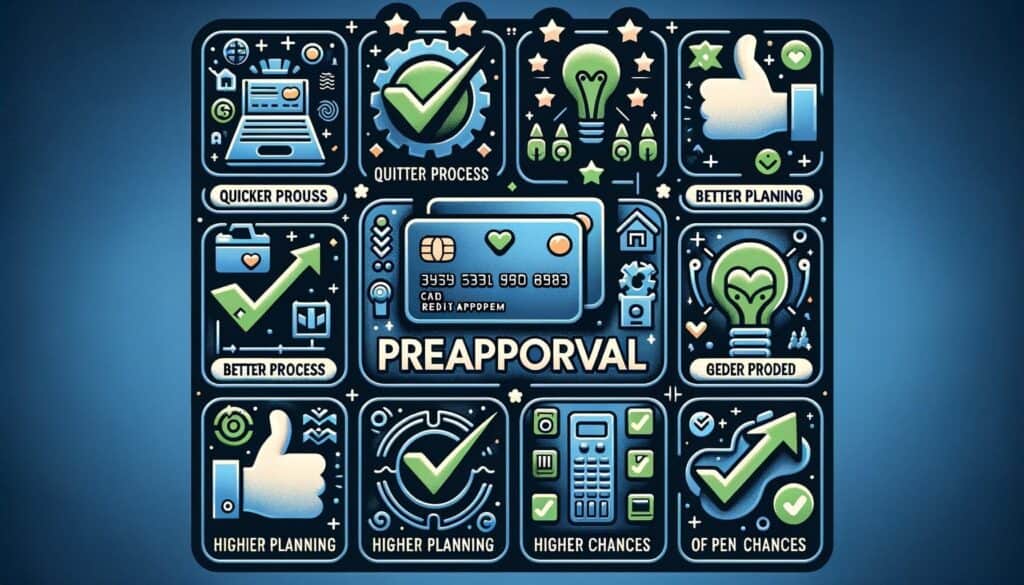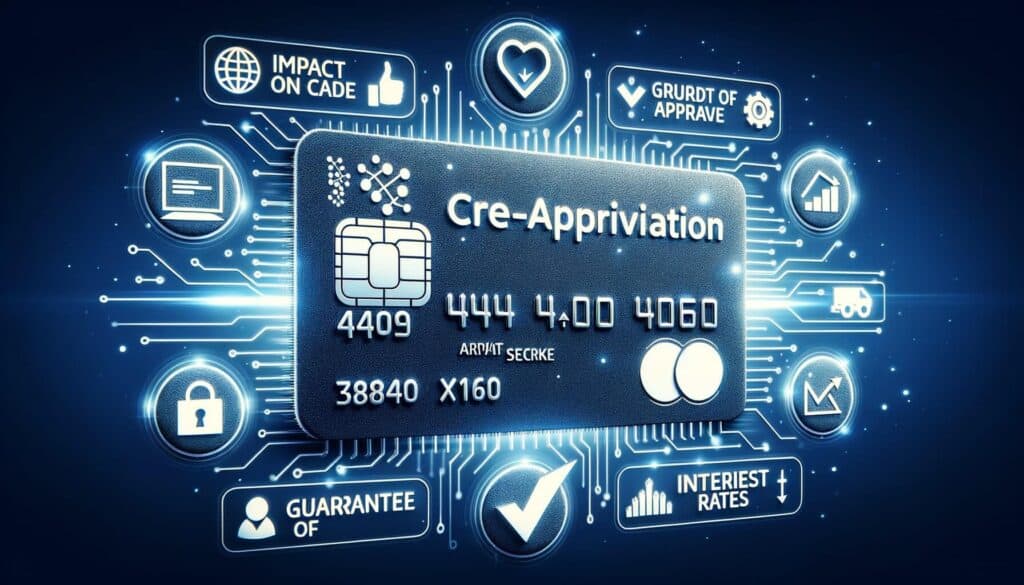
By Mollie Mills January 28, 2025
Credit card preapproval is a process that allows credit card issuers to assess a consumer’s creditworthiness and offer them a credit card without the consumer having to apply first. It is a way for credit card companies to target potential customers who meet certain criteria and may be interested in their credit card products.
Preapproval offers are often sent to consumers through mail, email, or online advertisements, enticing them with attractive terms and benefits. However, it is important for consumers to understand what credit card preapproval means and how it works before accepting any offers.
How Does Credit Card Preapproval Work?
Credit card preapproval works by credit card issuers using various methods to evaluate a consumer’s creditworthiness and determine if they meet the criteria for a particular credit card offer. These methods typically involve a soft inquiry on the consumer’s credit report, which does not impact their credit score. The credit card issuer may obtain the consumer’s credit information from credit bureaus or other sources to assess their credit history, income, and other relevant factors.
Once the credit card issuer has evaluated the consumer’s creditworthiness, they will send a preapproval offer to the consumer. This offer will outline the terms and conditions of the credit card, such as the interest rate, credit limit, and any promotional offers. The consumer can then choose to accept or decline the preapproval offer. If they accept, they may need to provide additional information or documentation to complete the application process.
Benefits of Credit Card Preapproval

Credit card preapproval offers several benefits for both consumers and credit card issuers. For consumers, preapproval offers can save time and effort by eliminating the need to apply for multiple credit cards and potentially face rejection. It allows them to receive personalized credit card offers that are tailored to their financial situation and needs. Additionally, preapproval offers often come with attractive terms and benefits, such as low introductory interest rates, cashback rewards, or travel perks.
For credit card issuers, preapproval offers are a way to target potential customers who are more likely to be interested in their credit card products. By evaluating a consumer’s creditworthiness before sending an offer, credit card issuers can minimize the risk of offering credit to individuals who may not qualify or may not be interested. This targeted approach can result in higher conversion rates and more profitable customer relationships.
Factors Considered in Credit Card Preapproval

Credit card issuers consider several factors when determining whether to preapprove a consumer for a credit card. These factors may vary depending on the issuer and the specific credit card product. However, some common factors that are typically considered include the consumer’s credit score, credit history, income, employment status, and debt-to-income ratio.
- Credit Score: The credit score is one of the most important factors considered in credit card preapproval. It is a numerical representation of a consumer’s creditworthiness and is based on their credit history. A higher credit score indicates a lower risk of defaulting on credit obligations and may increase the chances of being preapproved for a credit card.
- Credit History: Credit card issuers also evaluate a consumer’s credit history to assess their past credit behavior. They may look at factors such as the consumer’s payment history, the length of their credit history, the types of credit they have used, and any negative information such as late payments or bankruptcies. A positive credit history can improve the likelihood of being preapproved for a credit card.
- Income: The consumer’s income is another important factor considered in credit card preapproval. It helps credit card issuers determine the consumer’s ability to repay the credit card debt. A higher income may increase the chances of being preapproved for a credit card with a higher credit limit.
- Employment Status: Credit card issuers may also consider the consumer’s employment status when evaluating their creditworthiness. A stable job and regular income can indicate a lower risk of defaulting on credit obligations and may improve the chances of being preapproved for a credit card.
- Debt-to-Income Ratio: The debt-to-income ratio is a measure of the consumer’s monthly debt payments compared to their monthly income. It helps credit card issuers assess the consumer’s ability to manage additional credit card debt. A lower debt-to-income ratio may increase the chances of being preapproved for a credit card.
Understanding Credit Card Preapproval Offers
Credit card preapproval offers can vary in terms of the credit card product, terms and conditions, and benefits. It is important for consumers to carefully review and understand the details of any preapproval offers they receive before accepting them. Here are some key aspects to consider when evaluating preapproval offers:
- Interest Rate: The interest rate is one of the most important factors to consider in a credit card preapproval offer. It determines the cost of borrowing and can significantly impact the overall cost of using the credit card. Consumers should compare the interest rates offered by different preapproval offers and choose the one that offers the most favorable terms.
- Credit Limit: The credit limit is the maximum amount of credit that the consumer can borrow on the credit card. It is important to consider whether the credit limit offered in the preapproval offer is sufficient for the consumer’s needs. A higher credit limit can provide more flexibility and purchasing power, but it may also increase the risk of overspending and accumulating debt.
- Promotional Offers: Many preapproval offers come with promotional offers, such as low or zero introductory interest rates, cashback rewards, or travel perks. Consumers should carefully review the terms and conditions of these promotional offers to understand any limitations or restrictions. For example, an introductory interest rate may only be valid for a certain period, after which it may increase significantly.
- Fees: Credit card preapproval offers may also include information about any fees associated with the credit card, such as annual fees, balance transfer fees, or foreign transaction fees. Consumers should consider these fees when evaluating the overall cost of using the credit card and determine whether the benefits outweigh the costs.
- Terms and Conditions: It is important to carefully review the terms and conditions of the preapproval offer to understand any limitations or restrictions. For example, there may be restrictions on cash advances, balance transfers, or credit limit increases. Consumers should also be aware of any penalties or fees for late payments or exceeding the credit limit.
How to Apply for a Preapproved Credit Card

If a consumer decides to accept a preapproval offer and apply for a preapproved credit card, they will typically need to follow a few steps:
Step 1: Review the Preapproval Offer: The consumer should carefully review the preapproval offer to understand the terms and conditions, interest rates, fees, and any promotional offers. They should also consider whether the credit card aligns with their financial goals and needs.
Step 2: Gather Required Information: The consumer will need to gather the required information and documentation to complete the credit card application. This may include personal information, such as their name, address, social security number, and employment details. They may also need to provide proof of income, such as pay stubs or tax returns.
Step 3: Complete the Application: The consumer can complete the credit card application online, through mail, or over the phone, depending on the issuer’s application process. They will need to provide the required information and documentation accurately and truthfully.
Step 4: Wait for Approval: After submitting the credit card application, the consumer will need to wait for the credit card issuer to review their application and make a decision. The approval process may take a few days to a few weeks, depending on the issuer and the complexity of the application.
Step 5: Receive the Credit Card: If the consumer’s application is approved, they will receive the preapproved credit card in the mail. They should carefully review the terms and conditions of the credit card agreement and activate the card as instructed.
Common Misconceptions about Credit Card Preapproval

There are several common misconceptions about credit card preapproval that consumers should be aware of:
Misconception 1: Preapproval means guaranteed approval: One of the most common misconceptions about credit card preapproval is that it guarantees approval for the credit card. However, preapproval is not a guarantee of approval. It is an indication that the consumer meets certain criteria and may be eligible for the credit card, but the final decision is still made by the credit card issuer after reviewing the application.
Misconception 2: Preapproval affects credit score: Another misconception is that credit card preapproval will negatively impact the consumer’s credit score. However, preapproval typically involves a soft inquiry on the consumer’s credit report, which does not impact their credit score. Only when the consumer applies for the credit card and the issuer conducts a hard inquiry does it have a potential impact on the credit score.
Misconception 3: Preapproval means the best credit card offer: Consumers may assume that a preapproval offer is the best credit card offer available to them. However, it is important to compare preapproval offers from different issuers and consider factors such as interest rates, fees, credit limits, and benefits. There may be other credit card offers in the market that better suit the consumer’s needs and financial situation.
Misconception 4: Preapproval requires immediate action: Some consumers may feel pressured to accept a preapproval offer immediately, fearing that it may expire or that they may miss out on a good opportunity. However, it is important to take the time to carefully review and compare preapproval offers before making a decision. Rushing into accepting an offer without fully understanding the terms and conditions can lead to financial consequences.
Frequently Asked Questions about Credit Card Preapproval
Q1: Does credit card preapproval guarantee approval for the credit card?
A1: No, credit card preapproval is not a guarantee of approval. It is an indication that the consumer meets certain criteria and may be eligible for the credit card, but the final decision is still made by the credit card issuer after reviewing the application.
Q2: Will credit card preapproval impact my credit score?
A2: Credit card preapproval typically involves a soft inquiry on the consumer’s credit report, which does not impact their credit score. Only when the consumer applies for the credit card and the issuer conducts a hard inquiry does it have a potential impact on the credit score.
Q3: How can I improve my chances of getting preapproved for a credit card?
A3: To improve your chances of getting preapproved for a credit card, you can work on improving your credit score, maintaining a positive credit history, and managing your debt responsibly. Paying bills on time, keeping credit card balances low, and avoiding excessive credit applications can all help improve your creditworthiness.
Q4: Can I decline a preapproval offer without any consequences?
A4: Yes, you can decline a preapproval offer without any consequences. It is your choice whether to accept or decline the offer. Declining a preapproval offer does not impact your credit score or future credit card applications.
Q5: Can I negotiate the terms of a preapproved credit card offer?
A5: In some cases, you may be able to negotiate the terms of a preapproved credit card offer, such as the interest rate or credit limit. However, the extent to which you can negotiate may vary depending on the issuer and the specific credit card product. It is worth contacting the issuer to inquire about any potential negotiation options.
Conclusion
Credit card preapproval offers consumers the opportunity to receive personalized credit card offers based on their creditworthiness. It can save time and effort by eliminating the need to apply for multiple credit cards and potentially face rejection. However, it is important for consumers to carefully review and understand the terms and conditions of any preapproval offers they receive before accepting them.
They should consider factors such as interest rates, fees, credit limits, and benefits to determine whether the offer aligns with their financial goals and needs. By understanding credit card preapproval and making informed decisions, consumers can make the most of these offers and effectively manage their credit card usage.